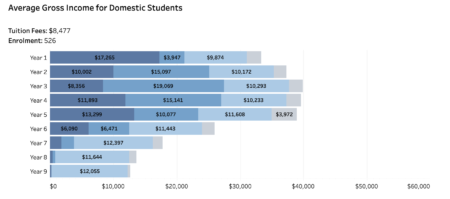Author: Milan
Polyfluoroalkyl substances (PFAS)
One of the case studies in my M.Phil thesis was persistent organic pollutants (POPs) — a class of mostly pesticides which have been restricted under international law because they harm humans and other species, persist in the environment for long periods, and bioaccumulate in food chains, rising to higher concentrations in each level of predators.
One of the reasons states were motivated to act was because of the strong moral case made by arctic Indigenous peoples, especially the Inuit. Data on the accumulation of POPs in breast milk was especially salient, as discussed in the excellent book edited by David Downie and Terry Fenge: Northern Lights against POPs: Combatting Toxic Threats in the Arctic.
Similar attention is now being directed toward polyfluoroalkyl substances (PFAS), which are also persistent or “forever chemicals” and which have also now been found accumulating in human breast milk.
Greyhound shutting down in Canada
After shutting down everywhere in Canada except Ontario and Quebec in 2018, Greyhound is now shutting down in Canada completely, aside from some routes across the border by the American company (Toronto to Buffalo and NYC; Montreal to Boston and NYC; Vancouver to Seattle).
When the government is so keen to help out those who drive or fly, I can’t understand why they are willing to let intercity bus services come to an end. Particularly given the safety concerns about hitchhiking or traveling informally in remote areas, I think it would make sense for the government to take over intercity bus services as a nationalized entity if there is no commercial operator willing to do it. With passenger train services as slow, expensive, and infrequent as they are in Canada, there ought to be an option for people unable to afford flying or unwilling to use such an emissions-intensive form of transport.
Caged dragon
Small bomb, bigger bomb
China emitting over 14 gigatonnes of CO2 equivalent
In a development that illustrates the global dynamics of climate change China’s emissions now exceed those of the entire developed world put together.
Since at least the 1990s the basic nature of a global deal to control climate change has been clear. States like Canada with the highest historical and per capita emissions need to cut their fossil fuel use dramatically. At the same time, rapidly developing countries need to choose a lower carbon development path than the states that preceded them.
Canada is massively reneging on this deal. We have never hit our climate targets and our leaders continue to act as though continued fossil fuel development can somehow be compatible with climatic stability. We also treat the emissions from the fossil fuels we produce as someone else’s problem, just as we treat the emissions that go into our imports (some of those Chinese emissions are making stuff for the benefit of Canadians, and people in all rich countries).
Persisting with the status quo is a suicide pact, yet states and citizens have not yet displayed the wisdom of recognizing and acting upon that. With so little time left to change course and avert the worst impacts of climate change we cannot keep accepting governments that abstractly promise that emissions will fall in the far future while working in practice largely to protect business as usual.
Brain-computer interfaces (BCIs)
One element of a science fiction future which I expect to see in my lifetime is the ability to directly connect human brains with computers and share instructions back and forth.
That seems especially plausible now that Neuralink has demonstrated a high bandwidth BCI with two tetraplegic people.
This evokes the idea of a Ghost in the Shell future where people can use their disembodied minds to control computer systems, robots, and prosthetics. Even just being able to control a computer with the rapidity of thought is essentially a superpower, since it would allow people to perform calculations and other tasks which their unaided brains could not manage. Beyond that, a transhuman future beckons.
Related:
Bong array
U of T grad school statistics
Someone recently posted a link to the Graduate Association of Students in Political Science (GASPS) email list to the University of Toronto’s School of Graduate Studied Data Dashboards.
There is data on admissions, enrolment, funding, degree completion, and career outcomes.
The data on people doing the PhD in Political Science specifically is quite interesting:
Elements that jump out at me: it seems like about 25-30% of people admitted never complete the program, the median time to a degree is 7.33 years, and most people finish in 5-8 years.
The chart on average gross income for domestic students in the polisci PhD program is also interesting:
The dark blue is the funding package which gets halved in year 6 and eliminated thereafter. The medium blue shows external awards, which are substantial for people in years 2-5. You really can really see the limited degree of income for people in years seven and beyond, almost all of which comes from teaching and research assistant work (the light blue), which while financially necessary for most probably hurts the completion rate for people who reach those years.
Related:







